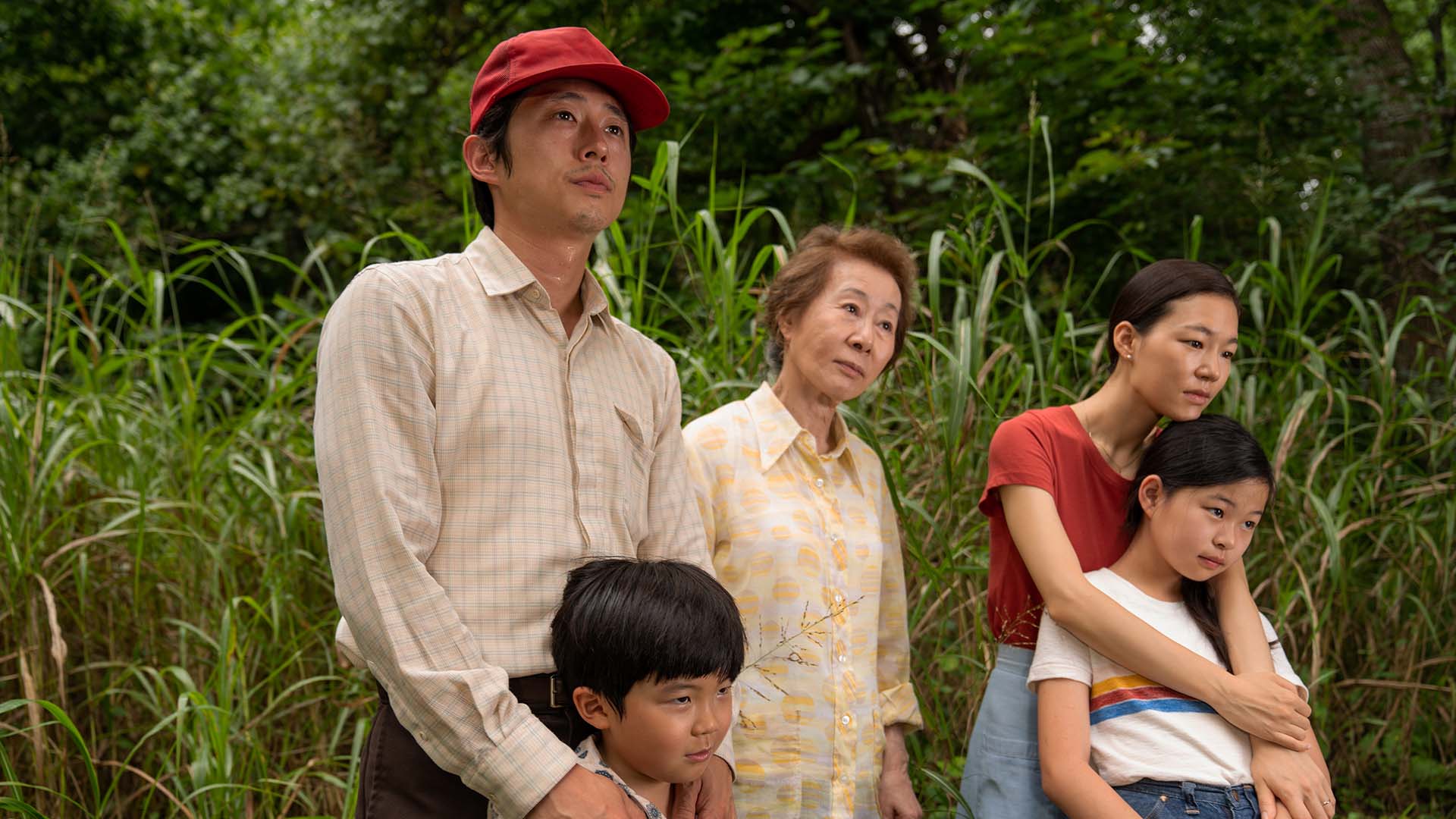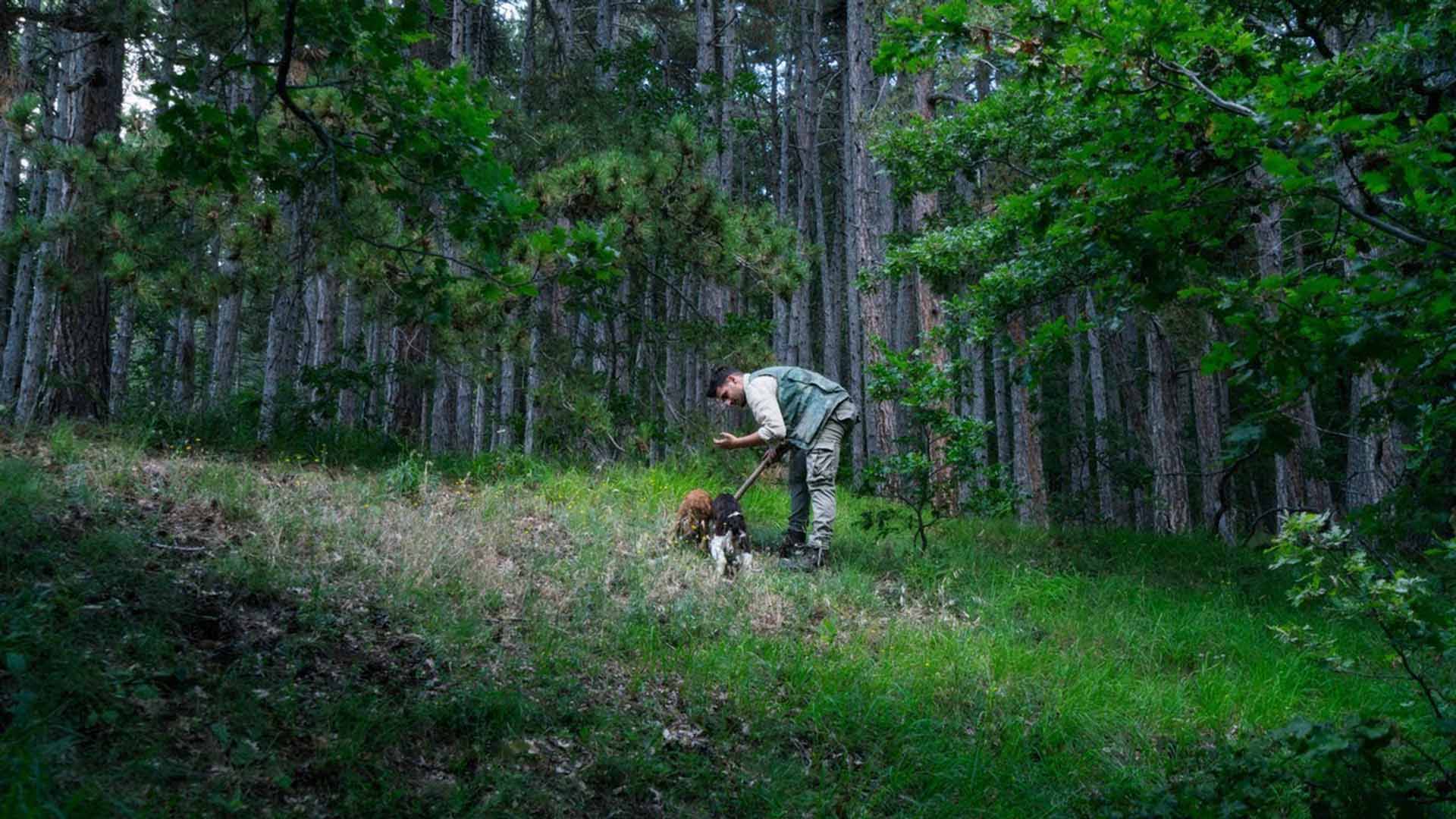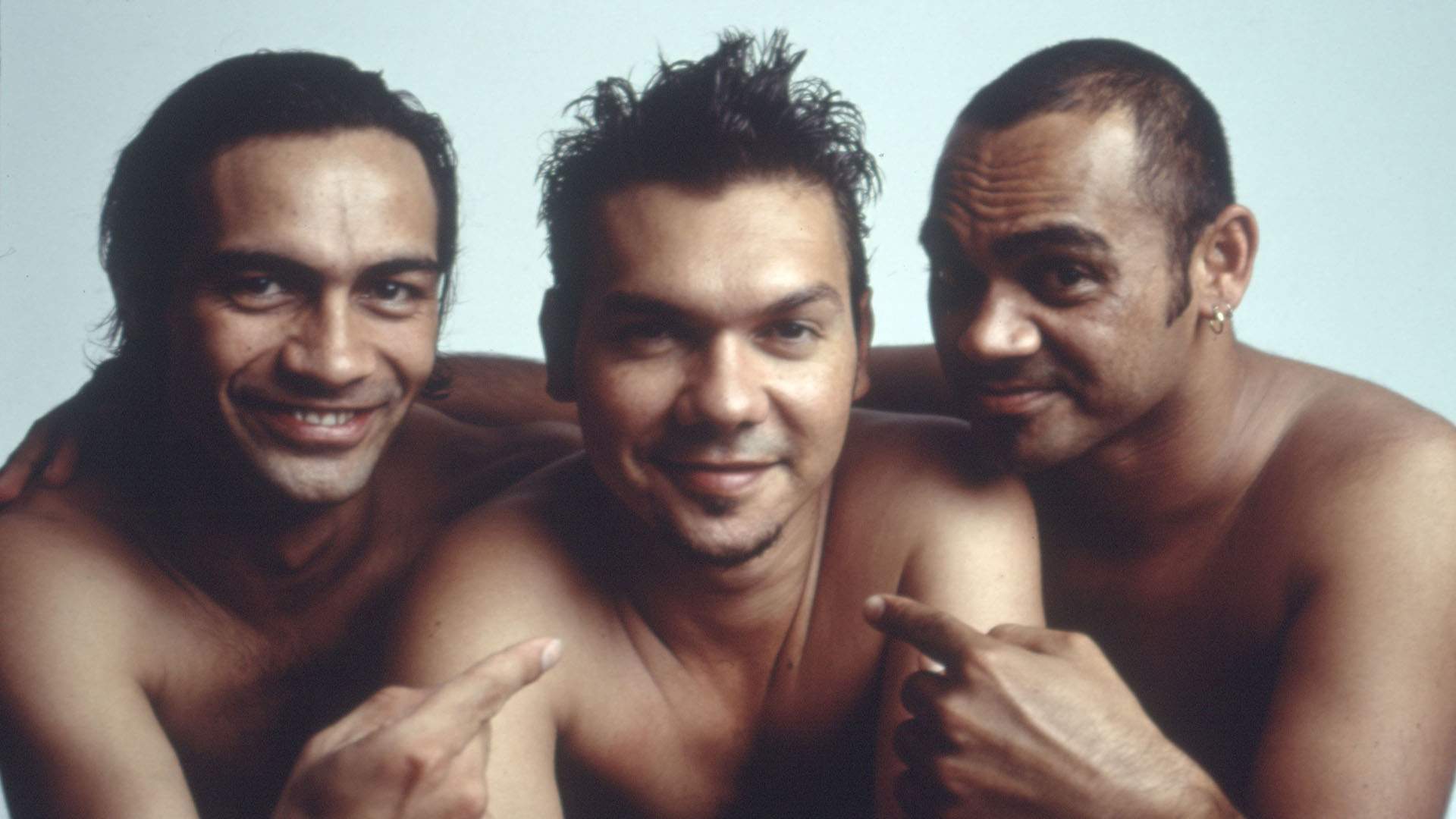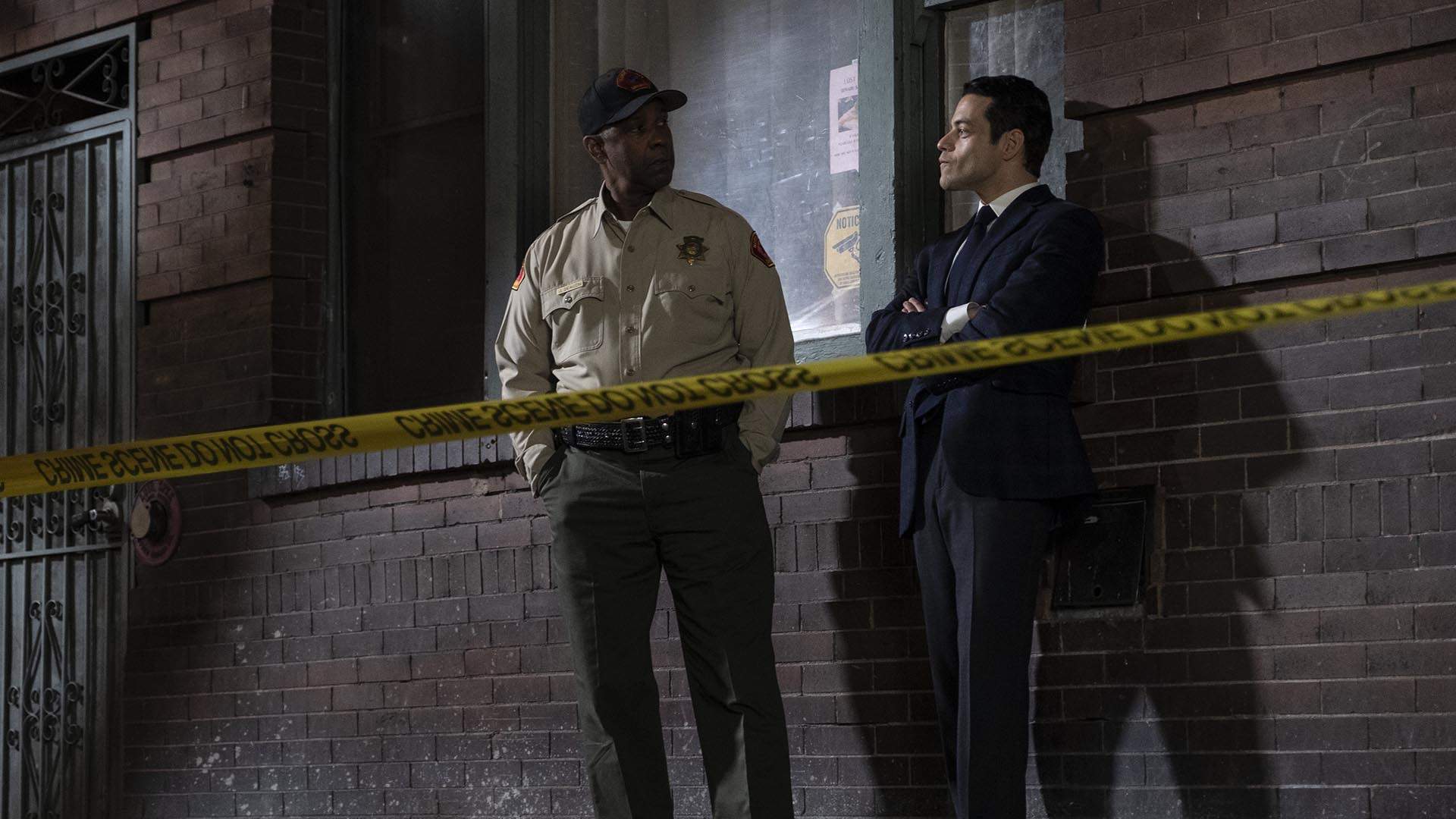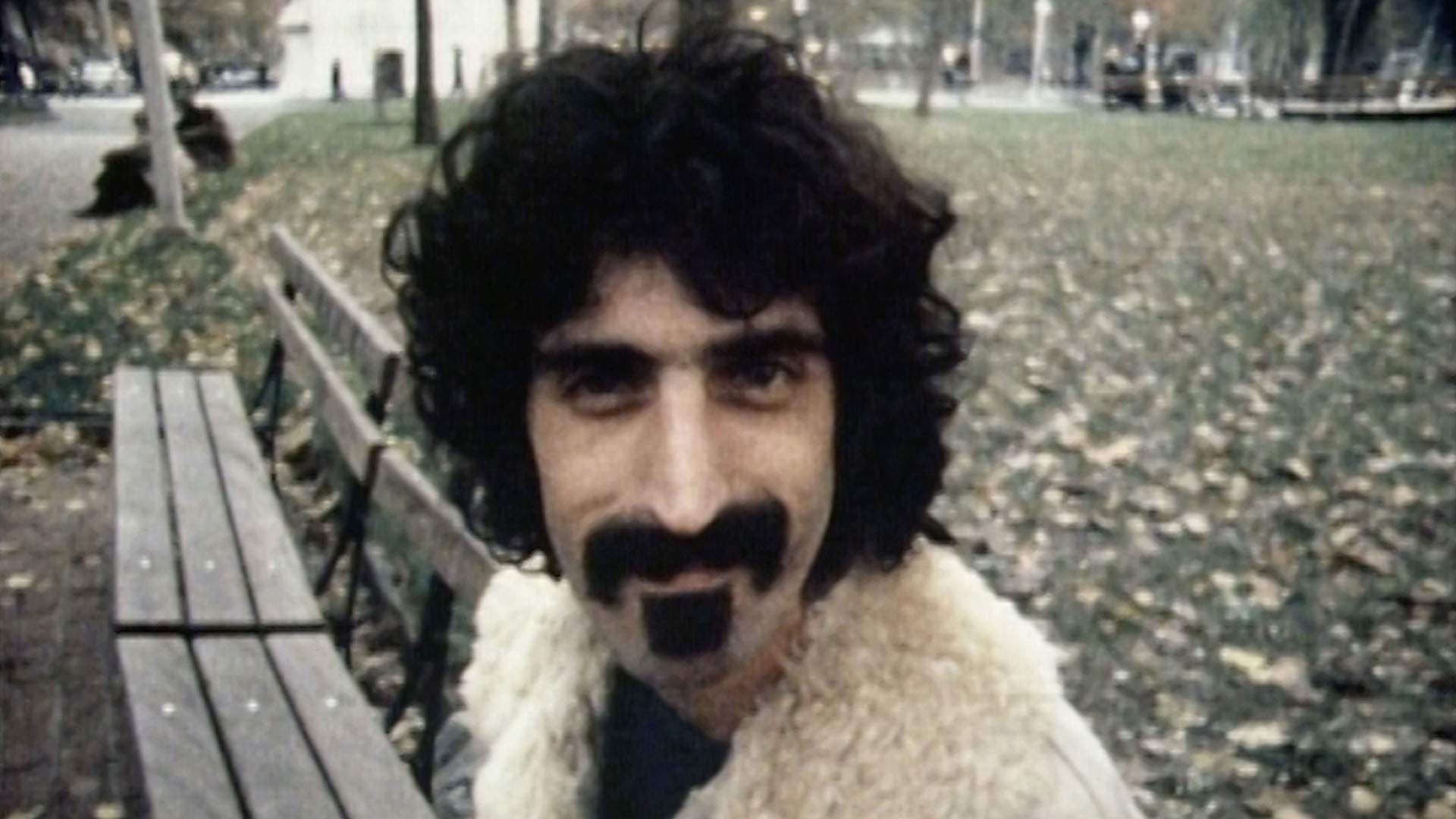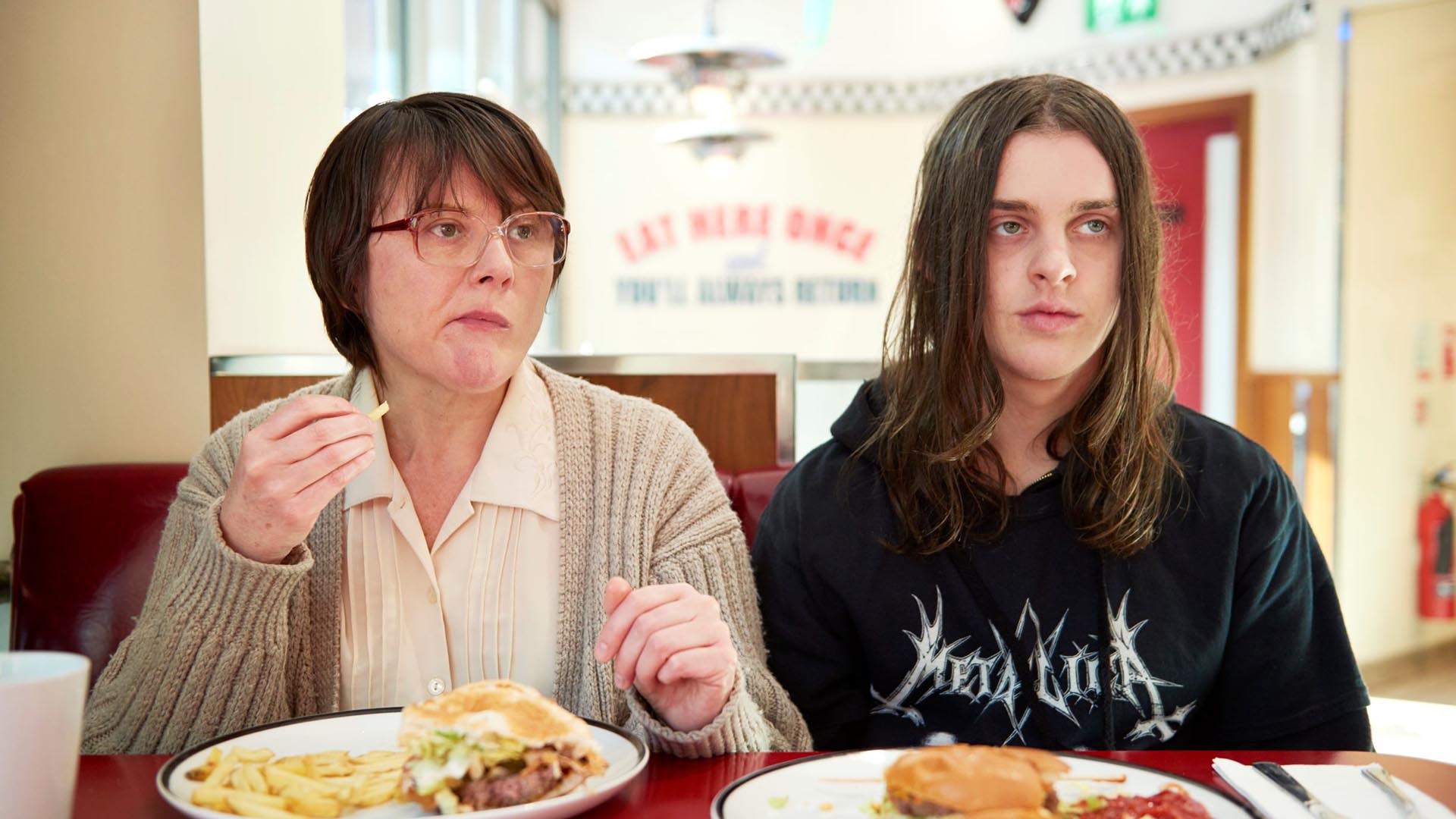The New Movies You Can Watch at Australian Cinemas From February 18
Head to the flicks to see a moving drama about a Korean American family, three excellent documentaries and a quirky British coming-of-age comedy.
Something delightful has been happening in cinemas across the country. After months spent empty, with projectors silent, theatres bare and the smell of popcorn fading, Australian picture palaces are back in business — spanning both big chains and smaller independent sites in Sydney, Melbourne and Brisbane.
During COVID-19 lockdowns, no one was short on things to watch, of course. In fact, you probably feel like you've streamed every movie ever made, including new releases, comedies, music documentaries, Studio Ghibli's animated fare and Nicolas Cage-starring flicks. But, even if you've spent all your time of late glued to your small screen, we're betting you just can't wait to sit in a darkened room and soak up the splendour of the bigger version. Thankfully, plenty of new films are hitting cinemas so that you can do just that — and we've rounded up, watched and reviewed everything on offer this week.

MINARI
Although they can frequently seem straightforward, films about the American dream aren't simply about chasing success. The circumstances and details change, but they're often movies about finding a place to call home as well. Such a quest isn't always as literal as it sounds, of course. While houses can signify achievement, feeling like you truly belong somewhere — and that you're comfortable enough to set your sights on lofty goals and ambitions that require considerable risks and sacrifices — transcends even the flashiest or cosiest combination of bricks and mortar. Partly drawn from writer/director Lee Isaac Chung's (Abigail Harm) own childhood, Minari understands this. It knows that seeking a space to make one's own is crucial, and that it motivates many big moves to and within the US. So, following a Korean American couple who relocate to rural Arkansas in the 80s with hopes of securing a brighter future for their children, this delicately observed and deeply felt feature doesn't separate the Yi family's attempts to set up a farm from their efforts to feel like they're exactly where they should be. The result is a precise, vivid, moving, and beautifully performed and observed film told with honest and tender emotion — so much so that it was always bound to be equally universal and unique.
When Jacob Yi (Steven Yeun, Burning) introduces his wife Monica (Yeri Han, My Unfamiliar Family), pre-teen daughter Anne (first-timer Noel Cho) and seven-year-old son David (fellow newcomer Alan S Kim) to their new 50-acre plot, he's beaming with pride. He's bought them "the best dirt in America," he says. It might only span a trailer, a field and a creek, but he's certain that it will revolutionise their lives. Although both Jacob and Monica still spend their days in a chicken sexing factory to pay the bills, Jacob is confident his agrarian dream will reap rewards. The path he's chosen isn't a glossy fantasy, though. From trying to work out where best to build a well to provide water for his crops, to endeavouring to convince stores to buy his wares, Jacob weathers more than his fare share of struggles. Monica's worries about their isolation, and about money, also weigh heavily, as she'd rather live in a larger city as part of the Korean diaspora. Also joining their daily woes in a movie that eschews overt conflicts for everyday dramas: Anne and David's attempts to fit in, the latter's heart murmur and the change that sweeps through the family when Monica's mother Soonja (Youn Yuh-jung, Sense8) comes to live with them.
Read our full review.

THE TRUFFLE HUNTERS
Northern Italy's woods are abundant with truffles, especially the tuber magnatum — otherwise known as the white variety. But before these highly sought-after morsels can make their way into kitchens, onto plates, and into many a willing and eager mouth, someone has to spend their time and expend their energy finding the edible fungus. Accordingly, The Truffle Hunters introduces viewers to multiple elderly men and their adorable dogs who all do just that, with their lives revolving around roving the forest and searching out the prized food. It might sound like a relaxed pursuit — as walking through trees with your pet pooch to fill your pockets with a delicacy is bound to — but it's a highly competitive endeavour, and one that the documentary's central figures are intensely passionate about. For Aurelio, the only thing he loves more than foraging for truffles is Birba, his canine partner in the hunt. The cantankerous Angelo has become disillusioned with the way that the industry has evolved over time, so he now attacks his typewriter with gusto instead, using it to chronicle his myriad woes and complaints. Then there's Sergio, who enjoys his task with his dogs Pepe and Fiona by his side. As for Carlo, his beloved pastime is forbidden by his wife. Unperturbed, he routinely sneaks out at night to search with a torch in hand.
Cycling between these men's stories, directors Michael Dweck (The Last Race) and Gregory Kershaw (cinematographer on The Last Race, and also on this) chart their individual efforts. The titular subjects try care for their canines, argue with others encroaching on their turf, type missives about how the world has changed and, in Carlo's case, keep absconding by moonlight. Their hounds remain a focus, including their efforts to avoid poison baits. Devoted to capturing the pooch perspective however they can, Dweck and Kershaw aren't above using puppy cam as well. Seeing truffle hunting from a dog's viewpoint may be an easy gimmick, but it's also both a joy and a thrill — and emblematic of the film's fondness for flavour and character above all else. Narration is absent, talking heads don't clog up the screen, and no one is on hand to describe the ins and outs of the business in the spotlight, with Dweck and Kershaw favouring immersion rather than explanation. It's a fitting approach, and a purposeful one, even if the documentary takes on a relaxed air from start to finish. The Truffle Hunters is a leisurely movie that's content to chronicle its subjects' easy-going lives, lean into their eccentricities and survey their lush surroundings — and, even clocking in at just 84 minutes, it's an unhurried gem of a film — however, it's also carefully compiled.
Read our full review.

FIRESTARTER — THE STORY OF BANGARRA
More than three decades since it was first formed, Bangarra Dance Theatre is still going strong. In just the last ten years alone, the Sydney-based organisation has unleashed the beauty and potency of works such as Blak, Patyegarang, Lore, OUR land people stories, Bennelong and Dark Emu across Australia's stages, and repeatedly confronted the nation's colonial history head-on in the process. As an Aboriginal and Torres Strait Islander arts outfit, it can't avoid it. It similarly can't ignore the impact that the country's past has had upon Indigenous culture, and the trauma that's rippled across generations as a result. And so, as excellent new documentary Firestarter — The Story of Bangarra tells the company's tale, these struggles are firmly part of the narrative. Co-directors Wayne Blair (The Sapphires, Top End Wedding) and Nel Minchin (Matilda & Me, Making Muriel) know their power. Indeed, the two filmmakers are well aware that they can't step through Bangarra's history without placing the acclaimed dance theatre in its rightful social, political and cultural context. What audiences have seen on stage over the years is stunning, astonishing and important, of course, but all of those exceptional performances haven't ever existed in a vacuum.
For those unacquainted with the details of Bangarra's origins, evolution, aims and achievements, Firestarter recounts them, starting with its leap out of the National Aboriginal Islander Skills Development Association and the Aboriginal Islander Dance Theatre. Actually, it jumps back further, not only stepping through Bangarra's predecessors, but also charting how Stephen, David and Russell Page became its most famous names. Just as it's impossible to examine the dance company's accomplishments and influence without also interrogating and chronicling Australia's history, it's simply unthinkable to do so without focusing as heavily on the Page brothers as Blair and Minchin choose to. Stephen would become Bangarra's artistic director, a role he still holds. David was its music director, while Russell was one of its best dancers — and their path from growing up in Brisbane in the 60s, 70s and 80s to helping shape and guide an Aussie arts powerhouse is a pivotal component of Bangarra's overall journey thus far. If it sounds as if Firestarter has been set a hefty task — doing triple duty as a celebration, a record of Australia's past and a portrait of three siblings with dreams as big as their talents — that's because it has. But this dense and yet also deft documentary is up to the immense feat, and dances through its massive array of material, topics and themes as skilfully as any of Bangarra's performers ever have.
Read our full review.

THE LITTLE THINGS
Before you've even seen a single frame of a film, much can sometimes be gleaned by merely knowing who's in it — if they've been cast to type. The Little Things features Denzel Washington, Rami Malek and Jared Leto, which means it can brag that it stars three Oscar winners, as its trailer does. This 90s-style serial killer thriller has also happily deployed its trio of main players exactly as you'd expect. So, adding yet another cop to his resume, Washington plays unflinchingly dedicated and determined, as well as a character who's far from perfect. Malek has a much shorter acting history, but once again combines the blend of awkwardness and meticulousness that seeped from his pores over four seasons of Mr Robot. As for Leto, he's asked to mine not just his recent cinematic past, but also his overall status in popular culture. From his overcooked take on the Joker in Suicide Squad to the misplaced swagger that's defined his off-screen persona and his rock stardom with Thirty Seconds to Mars, he's hardly widely beloved. The Little Things wants everyone watching to remember that, and perhaps to even stoke the flames of their existing Leto hatred. It works; he's been nominated for a Golden Globe and a Screen Actors Guild Award for his greasy-haired turn, and he's so one-note and over-the-top that it's near-impossible to fathom why.
Washington's Joe 'Deke' Deacon was once a well-admired Los Angeles detective; however, when writer/director John Lee Hancock (The Blindside) begins The Little Things, his central character is now a deputy sheriff in Kern County. Deke's current and former colleagues all see that shift as a step down, but he's just as dogged in his new job — and, when he's reluctantly sent back to LA to collect evidence for an important trial, then gets brought in on a new case by Malek's hotshot newcomer Jim Baxter while he's hanging about, he's downright unrelenting. A number of women have been found murdered, and in gruesome circumstances. Baxter doesn't realise it, but the details prove familiar to Deke from years earlier. As the pair's new investigation leads them to repair store employee Albert Sparma (Leto), neither Deke nor Baxter is willing to rest until they solve the case. Off-putting and unpleasant from the moment he's first seen, the creepy, possibly psychotic Sparma likes being seen as a suspect, though, and enjoys toying with the men following him.
Read our full review.

DAYS OF THE BAGNOLD SUMMER
For everyone of schooling age, the onset of warm weather means a lengthy break from classes, teachers, and the child and teenage version of the daily grind. It's a time of freedom, of never needing to worry about what day of the week it is, and of roaming around like there's no tomorrow. For Daniel Bagnold (Earl Cave, True History of the Kelly Gang), he's looking forward to leaving his suburban British existence far behind for a few weeks by visiting his father in Florida. As an added bonus, his librarian mother Sue (Monica Dolan, The Dig) — who he's constantly embarrassed by — isn't coming with him. Then his dad's new life, wife and soon-to-arrive baby daughter get in the way of Daniel's plans, leaving the 15-year-old stranded at home and unhappy about it. He'd be content holing up in his room, listening to metal and fantasising about starting his own band, but Sue is adamant that he tries to find a job. She also complicates Daniel's days by going out on a date with one of schoolteachers (Rob Brydon, The Trip to Greece). That's the leisurely story at the heart of Days of the Bagnold Summer, a coming-of-age comedy driven more by mood than by narrative developments. It has an overall arc, watching on as Daniel and his mother reconnect; however, this adaptation of the graphic novel of the same name is at its best when it sinks into the annual season of teen dreams and disappointments.
First-time feature filmmaker Simon Bird is no stranger to the subject, having spent three seasons and two movies starring in The Inbetweeners. Fans of that franchise's irreverent humour will find themselves in far more laidback territory here, though — and watching a film that, visually and tonally, strives to offer a Wes Anderson-esque view of adolescence. Days of the Bagnold Summer's meticulously framed widescreen images don't ever feel like a cheap imitation, thankfully. Rather, they're artful and probing, especially when they manage to peer on at Daniel and Sue doing different things in the same household space. Indeed, this is a movie with a keen sense of how living in the same place and weathering the same struggles doesn't always make two people a family if one of them is determined to resist the concept. It's that insight, always tinged with bittersweet emotion, that helps Bird's feature strike a chord. Working with a script adapted by fellow first-timer Lisa Owens, he also finds the right balance between deadpan quirkiness and lived-in naturalism. Also assisting is Cave, son of Nick, who wears Daniel's malaise like a second skin — and the soundtrack by Belle and Sebastian, which is perfectly pitched.

ZAPPA
Not everyone can brandish the swagger and charisma of a rock star, but that might actually be the easiest part of the job. To truly earn the term is to genuinely stand out from the ever-growing crowd and, often, to become the kind of music icon that can be referred to with just a single word. Frank Zappa was that kind of figure. Almost three decades after his death in 1993 to cancer, he still is. His music isn't for everyone, but his talent is undisputed, and he has more than 100 albums (62 released while he was alive, and 50 that've hit stores since his passing) that showcase his efforts as a singer, songwriter, composer, bandleader and multi-instrumentalist. While he was alive, he also amassed an enormous archive of materials from across his career, spanning his work with his band Mothers of Invention, his collaborations with other artists and, of course, the 1982 hit single 'Valley Girl' that he recorded with his then 14-year-old daughter Moon Zappa. Combine all of the above, and you get Zappa. Lively, detailed and riveting, this documentary attempts the difficult feat of condensing Frank's life and impact into 129 minutes — and, regardless of whether you're already a fan or not, it does an impressive and engaging job.
You could say that Alex Winter — yes, the star of the Bill and Ted franchise that's not Keanu Reeves — took on an easy task when he decided to direct Zappa. Thanks to all the footage, songs, clips and photos at his disposal, as well as the participation of Frank's family, friends and colleagues, he definitely wasn't short on material to weave into this wide-ranging chronicle. Candid chats, eye-popping claymation and home videos all feature, and the film zips happily from one to the other with enthusiasm. But great documentaries don't just splice together the obvious bits and pieces, then throw in a few left-field choices. They explore and examine their subjects, even when they're celebratory. And, in Zappa's case, they wholeheartedly interrogate a man seen as a genius by some and considered too out-there and inaccessible by others. There are moments in the film that prove both viewpoints. There are others that appear to veer off on tangents, but firmly showcase the breadth of Frank's musical experimentation along the way. In his sixth stint as a documentarian (with Downloaded, Deep Web and The Panama Papers among the other titles on his resume), Winter circles and leaps through his central figure's existence and enigma, and it's never anything less than fascinating viewing.

If you're wondering what else is currently screening in cinemas — or has been lately — check out our rundown of new films released in Australia on November 5, November 12, November 19 and November 26; and December 3, December 10, December 17, December 26; and January 1, January 7, January 14, January 21 and January 28; February 4 and February 11.
You can also read our full reviews of a heap of recent movies, such as The Craft: Legacy, Radioactive, Brazen Hussies, Freaky, Mank, Monsoon, Ellie and Abbie (and Ellie's Dead Aunt), American Utopia, Possessor, Misbehaviour, Happiest Season, The Prom, Sound of Metal, The Witches, The Midnight Sky, The Furnace, Wonder Woman 1984, Ottolenghi and the Cakes of Versailles, Nomadland, Pieces of a Woman, The Dry, Promising Young Woman, Summerland, Ammonite, The Dig, The White Tiger, Only the Animals, Malcolm & Marie, News of the World, High Ground, Earwig and the Witch, The Nest, Assassins, Synchronic and Another Round.
